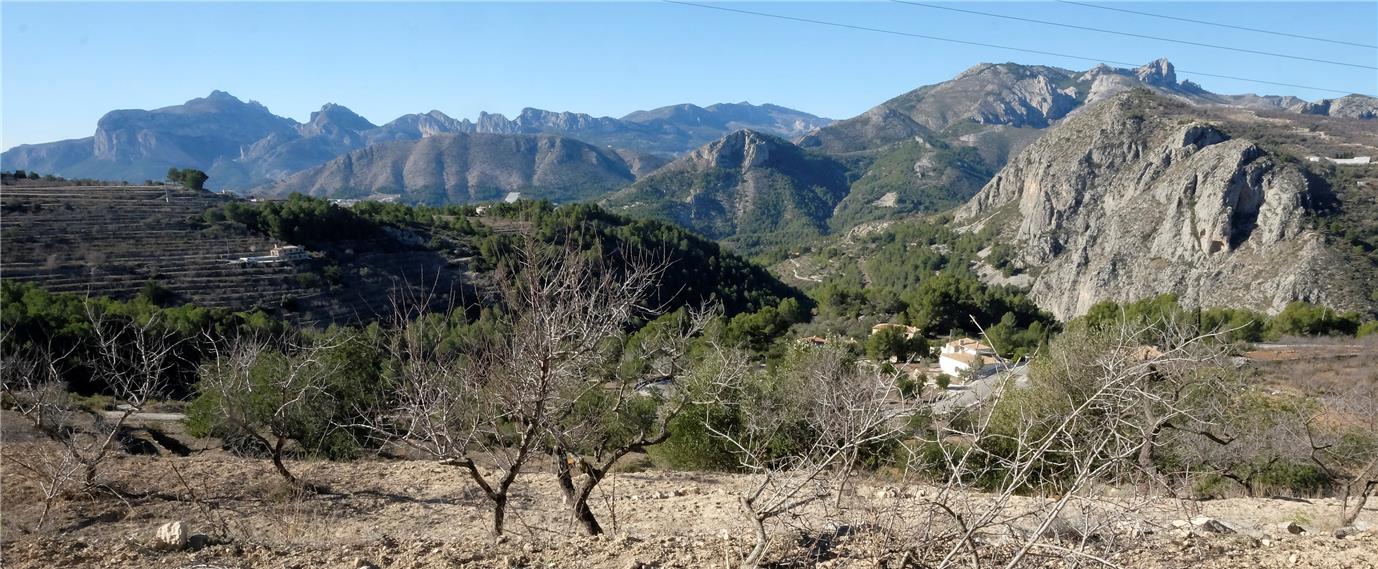تبدو الصحافة الاستقصائية شديدة الجاذبية للصحفيين الشبان تحديدا لأنها تحقق نوعا من المجد الشخصي، لكن الأمر يختلط على الكثير منهم عندما يعتقد أن الصحافة الاستقصائية هي صحافة المغامرة والمخاطرة. هذه الصورة النمطية واحد من تحديات كثيرة تواجهها الصحافة الاستقصائية في العالم العربي، وهي صورة تحتاج إلى التغيير سريعا، بأن يتلقى الصحفيون الراغبون في دخول هذا المجال مزيدا من التدريب على هذا النوع الصعب -لكن المؤثر- من الصحافة.
بالنسبة لكثير من الصحفيين في بداياتهم، تعتبر الصحافة الاستقصائية طريقا سريعا وبابا واسعا لتحقيق النجاح، الأمر الذي يجعل بعضهم يقرر المضي في الطريق دون أن يمتلك الأدوات الكافية، ويتسلح بالأسلحة اللازمة لتحقيق هدفه.
لا تعمل الصحافة الاستقصائية بالنيات، ولكن بتبني منهج في البحث والتقصي من أجل إثبات كل حقيقة يرغب الصحفي في إثباتها. كما أن هذه العملية يجب أن تتم بأقل قدر من المخاطرة، سواء بالنسبة للصحفي أو لمصادره، إضافة إلى الالتزام الصارم بالمعايير المهنية والأخلاقية. وعندما يختار صحفي أن يدخل هذا المجال من الصحافة، عليه أن يعرف أنه دخل المجال الذي قد يؤدي به إلى الشهرة أحيانا، أو إلى صناعة الأعداء في أحيان أخرى كثيرة.
مخاطر ومزيد من المخاطر!
يعمل الصحفي الاستقصائي من أجل تغيير العالم إلى الأفضل، يحركه غضب ما تجاه أوضاع سلبية في محيطه يتقاعس مسؤولون أو نافذون عن معالجتها، أو يتواطؤون من أجل استمرارها وبقائها طي الكتمان. هنا يكمن الفارق بين الصحافة التقليدية التي "تغطي" ما يحدث وتنقله للجمهور، وبين الصحافة الاستقصائية التي "تكشف" أمورا تحدث قد لا يعرف عنها الجمهور كثيرا، وترغب أطراف في عدم كشفها لأن في هذا الكشف تهديدا لمصالحها. وهذه الأطراف تتضمن -على الأغلب- مسؤولين حكوميين متقاعسين أو متواطئين، أو رجال أعمال فاسدين، أو أعضاء في مجموعات جريمة منظمة، الأمر الذي لا يجعل مهمة الصحفي الاستقصائي صعبة فحسب، وإنما محفوفة بالكثير من المخاطر أيضا.
تسعى الأطراف المتضررة من كشف الحقائق -بكل الأشكال- إلى إعاقة عملية التقصي حفاظا على مصالحها، وتستخدم كل الوسائل التي تمكّنها من ذلك، بدءا من حجب المعلومات، ووصولا إلى تهديد الأطراف الفاعلة في التقصي، أو الإضرار الفعلي بها في بعض الأحيان.
وتفرض هذه التحديات التي تصل إلى درجة التهديدات أحيانا؛ أن يعي الصحفي الاستقصائي أبعاد كل خطوة يخطوها، وأن يدرسها جيدا، قبل أن يتورط في مخاطرة غير مبررة قد تقوده هو أو مصادره إلى متاعب غير مرغوب فيها.
عقدة القصة الكبيرة
بعد أن يتلقى الصحفيون تدريبات على منهج التقصي تؤهلهم للعمل وفق قواعد وخطوات علمية، وتحررهم من الصورة النمطية حول صحافة المغامرة والمخاطرة، يقع كثير منهم في ما يمكن تسميته "فخ القصة الكبيرة"، إذ يرغب الصحفي عادة في تفجير قضية كبيرة تحقق له نجاحا مدويا، وتجعل من اسمه علامة في عالم الصحافة، وهذا أمر مفهوم. لكن هذه الرغبة -المفهومة والمبررة- في تحقيق النجاح قد تقف حجر عثرة أمام نجاح الصحفي الاستقصائي، إذ تبطئ خطواته، وتجعله أسيرا لانتظار ما يتصور أنه قنبلة صحفية ستحقق له المجد.
يعتقد كثير من الصحفيين الاستقصائيين أن قضايا الفساد السياسي والمالي، وقضايا تعقب الأموال، وقضايا الجريمة المنظمة؛ هي وحدها التي يمكن أن تحقق له نجاحا، وتجعل اسمه كبيرا في عالم الصحافة عموما، والصحافة الاستقصائية خصوصا. ولكن واقع الأمر أن "عقدة القصة الكبيرة" هذه قد تعمي الصحفي الاستقصائي عن قضايا أخرى كثيرة وسهلة، ويمكنها أن تحدث أثرا أقوى، مثل قضايا الصحة والبيئة والغذاء التي تهم قطاعا واسعا من الجمهور، وتمسه يوميا ومباشرة.
صحيح أن الجمهور يهتم بالقضايا السياسية وبالأمور التي تتعلق بكشف ممارسات أشخاص مشهورين ومؤثرين في المجتمع، لكن الجمهور نفسه سيهتم بالأمور التي يتحقق فيها عامل القرب الشخصي.. "هذا يحدث معي، أو مع أشخاص أعرفهم".

صحافة "التسريبات"
الصحافة الاستقصائية ليست هي صحافة التسريبات كما يعتقد الكثير من الصحفيين بالطبع. فتسريبات "ويكيليكس" ليست صحافة استقصائية، ولا "وثائق بنما".. هذه الوثائق التي نحصل عليها بشكل أو بآخر، هي مجرد بداية لتحقيق استقصائي، وليست تحقيقا استقصائيا في ذاتها. عندما يحصل الصحفي الاستقصائي على وثيقة، فإنه يمر بعملية مركبة للتحقق من صحتها، قبل أن يبدأ في تحويلها إلى قصة كبيرة من خلال عملية تقصٍّ قد تطول، لأنها قد تتطلب الحصول على المزيد من الوثائق، ومقابلة أو مواجهة العديد من المصادر المرتبطة بها.
في "وثائق بنما"، مثلا، وكما هو الحال مع تسريبات "ويكيليكس"، عكفت فرق كاملة من الصحفيين الاستقصائيين على دراسة ما توفر من وثائق وبرقيات لتحويلها إلى قصص صحفية استقصائية مبنية على فرضيات، وإثبات الفرضيات النابعة منها بشكل لا يقبل الشك. ولا يكفي أبدا أن يحصل الصحفي على وثيقة رسمية ليفترض صحتها، لأنها قد تكون الجزء الظاهر فقط من جبل الوثائق المخفي، أو ربما تكون فخا يجعل روابط القصة ضعيفة ومفككة. فإذا كانت هناك قصة قوية ومهمة، لكنها تحتوي على رابط ضعيف واحد، فهذا يعني أن القصة كلها قابلة للهدم، وهناك دائما أطراف تسعى لذلك، وهي الأطراف ذاتها التي تسعى لعدم كشف مسؤوليتها عنها، أو تورطها فيها.

غريب في غرفة التحرير
يواجه الصحفي الاستقصائي بيئة عمل معادية خارج غرفة التحرير، لكنه قد يواجه بيئة عمل محبطة داخلها أحيانا. ولا يستوعب كثير من مديري التحرير أن يقضي صحفي ستة أشهر -في المتوسط- في إنجاز قصة واحدة، بينما كان يمكن أن ينجز قصتين خبريتين يوميا، بإجمالي 360 قصة تقريبا في الأشهر الستة.
يبدو الصحفي الاستقصائي -أحيانا- غريبا في غرفة التحرير، ليس فقط بالنسبة لبعض رؤسائه الذين قد لا يعلمون شيئا عن القصة التي يعمل عليها، ولكن أيضا بالنسبة لزملائه الذين يرون شخصا منكبا على حاسوبه الخاص لأوقات طويلة، بدون أن يروا له شيئا منشورا لأشهر.
لكن الأمر في السنوات الأخيرة يبدو أفضل بعدما انتشرت ثقافة الصحافة الاستقصائية في غرف التحرير، وبات الصحفيون يدركون أن العمل الصحفي الجيد يجري طبخه على نار هادئة. غير أن هذا التحسن لم يجعل بيئة العمل مثالية أو مرحبة تماما، لأن كثيرا من الناشرين ورؤساء التحرير في العالم العربي لا يقدر هذا النوع من الصحافة حق قدره، ويعتبره نوعا مكلفا -من وجهة نظره- وبلا طائل، مفضلا مساهمة كل الصحفيين في دوران عجلة الأخبار التي لا تتوقف.

تحدي المستقبل
لا تمثل الصورة النمطية عن الصحفي الاستقصائي، أو نقص المعلومات، أو حجبها في العالم العربي، وعدم وجود تشريعات تتيح حرية تدفق المعلومات في الغالبية العظمى من الدول العربية، أو العمل في بيئة معادية؛ جميع التحديات التي تقف أمام الصحافة الاستقصائية، فالتطورات التقنية في سرد القصص تعتبر تحديا جديدا وجديا لا يمكن النظر إليه باستهانة. فما معنى أن تكون لديك قصة مهمة، قضيت وقتا كبيرا في إنجازها، وبذلت مجهودا فائقا في عملية البحث والتحقق والتقصي، ولكنك ترويها بشكل لا يجعلها تصل إلى الجمهور، إما لأنك تستخدم الوسيط غير المناسب، أو طريقة السرد غير المناسبة؟
لا يكفي الصحفي الاستقصائيالآن أن يطور مهاراته في البحث والتحقق والتقصي، وإنما بات عليه أن يطور مهاراته في سرد القصة أيضا، وأن يكون واعيا بالسرد القصصي الرقمي، وواعيا بكيفية سرد قصصه على منصات متقاطعة الوسائط. هذا الأمر يتطلب مزيدا من بناء القدرات في مجالات قد يغلب عليها الجانب التقني، فالأمور التقنية لم تعد منفصلة عن أساليب السرد في الصحافة الحديثة بوسائطها المختلفة.









































